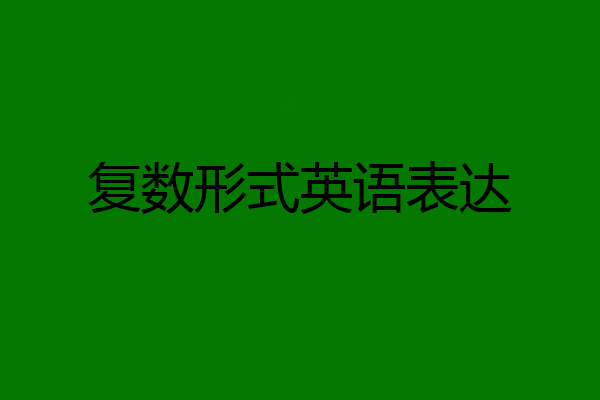
小雨叫主子
名词的词形变化1.不规则复数形式1)来自古英语的复数形式,如:child---children foot---feet tooth---teeth goose---geeseman---men woman---women mouse---mice louse---liceox---oxen penny---pence analysis---analyses appendix---appendicesparenthesis---parentheses basis---bases ellipsis---ellipsesaxis---axes hypothesis---hypotheses oasis---oases crisis----crisescriterion---criteria phenomenon---phenomena datum---data medium---mediabacterium---bacteria nucleus---nuclei fungus---fungi stimulus---stimulialumnus---alumni focus---foci radius---radii terminus---terminilarva---larvae alga---algae formula---formulae#当代美国英语中往往把data当做单数用,因此常见到复数形式datas。另外,lens是一个单数可数名词,其复数形式为lenses。1)词尾读音为[f]并以-f或0-fe结尾的名词复数形式有以下几种情况: a)规则形式:belief---beliefs chief----chiefs cliff----cliffs grief----griefsb)不规则形式,即把-f或-fe变成-v,再加-es,读音为[vz]:calf---calves half---halves leaf----leaves life----livesloaf---loaves self---shelves thief---thieves wife---wiveswolf---wolvesc)既可是规则形式又可是不规则形式:dwarf---dwarfs/dwarves hoof---hoofs/hovesscarf---scarfs/scarves wharf---wharfs/wharves3)词干以-o结尾的名次有三种情况:a)附属形式为-s:这类词包括缩略词kilos,photos;表示国籍或民族的词Filipinos,Eskimos以及radios,solos,sopranos, studiosb)复数形式为-es,如:heroes,potatoes,tomatoes,Negroes。c)复数有规则的和不规则的两种形式,如:cargo---cargos/cargoes mosquito---mosquitos/mosquitoes volcano---volacbos/volcanoes2.单复数同形的名词 1)某些动物名词,如:deer,grouse,salmon,trout,carp,bison,sheep等2)以-ese或-ss结尾的表示民族或国籍的名词,如:Chinses,Japanese,Portuguese,Swiss,Vietnamese等3)某些以-s结尾的名词,如:barracks,corps,crossroads,gallows,headquarters,means,series,species,works等4)某些表示计量单位的名词,如:horsepower,hertz,kilohertz,li,mu等其他一些名词,如:aircraft,spacercarft,craft,offspring等。其中请特别注意-s结尾的单复数同形的名词,它们是考试的重点!!3.不可数名词不可数名词前一般不需要加定冠词,永远不能加不定冠词!例如下列用法均属错误:the mathematics the banking a cloth an equipment不可数名词作主语,谓语要用单数形式。如:Water is important.但如果不可数名词前面被piece,drop,set等词修饰时,谓语应该与piece,drop,set等的单复数形式保持一致例如:Few drops of water are needed to save the flower.下面是典型的不可数名词,是应该熟记的!!air,smoke,steam,vapor,hydrogen,oxygen,nitrogen,water,oil,soup,juice,ink,rain,snow,ice,tea,coffee,wine,sunlight,sunshine,lightning,thunder,weather,darkness,heat,light,electricity,energy,power,sugar,salt,rice,corn,powder,flour,sand,dust,dirt,garbage,grass,hair,furniture,luggage,clothing,mail,equipment,food,meat,fruit,bread,toast,stone,iron,copper,chalk,paper,glass,wood,money,poetry,jewelry,machinery,weaponry,personnel,scenery,happiness,kindness,honesty,friendship,attention,wisdom,success,courage,bravery,health,wealth,ignorance,trouble,ease,luck,laughter,love,peace,news,information,knowledge,intelligence,fun,pleasure,entertainment,enjoyment,recreation,relaxation,progress,room,work,homework,population,percent,mathematics,econmics,statistics,meteorology,anthropology,architecture,physics,photography,ethics,politics,mechanics,genetics,geology,geography,chemistry,philosophy,biology,history,music,English,measles,mumps,diabetes,malaria,pediatrics,obsterics请特别注意其中以-s结尾的不可数名词,大家平时应该积累遇到的不可数名词!!注意下列可数名词!! poet poem essay newspaper machine weapon scene photograph photographer英语中有许多名词既可作可数,又可作不可数。如:hair作“人或动物的毛”的时候是可数名词,作头发解释时是不可数名词。判断一个词是否可数,除了记忆以外, 主要看题中该名词的修饰词来决定。如:much只能修饰不可数名词 4.单数形式和复数形式的词义不同的名词英语中有些名词的复数形式的词义不同于单数形式,如:air(空气)---air(气派) arm(手臂)---arms(武器) ash(灰)---ashes(骨灰;废墟)authority(权利)---authorities(当局) cloth(织物)---clothes(衣服) content(含量)---contents(目录)custom(习惯)---customs(海关;关税) damage(损害)---damages(赔偿金) force(力量)---forces(武装部队)glass(玻璃)---glasses(眼镜) good(利益)---goods(货物) green(绿色)---greens(青菜) letter(字母)---letters(文学) manner(方式)---manners(举止,仪态) minute(分钟)---minutes(记录)pain(痛苦)---pains(劳苦) papaer(纸)---papers(文件) quarter(1/4)---quarter(宿舍)spectacle(光景)---spectacles(眼镜) spirit(精神)--- spirits(烈性酒) time(时间)---times(时代)water(水)---waters(水域) wood(木头)---woods(森林) work(工作)---works(工厂)总结 1.单数名词不能单独存在,一般前面应该有限定词修饰。2.不定冠词a/an永远只能修饰单数可数名词。3.every和each永远只能修饰单数可数名词。 但every+数词+复数名词是正确的,如:every ten years4.序数词后面一般使用单数可数名词。5.anther永远只修饰单数可数名词 但another+数词/few+复数名词是正确的,如:another eight years;another few books6.other通常修饰复数名词,也可修饰不可数名词。 但the other+is/was 单数名词或any other+单数名词是正确的,如 We have two girls in this team.One is Mary,the other is Alice. Henry Smith is taller than any other student in his class.7.下列词和短语只能修饰复数名词these,those,many,various,several,numerous,diverse,few,a few,both,a (good/large/great) number of,numbers of,one of8.大于1的词数只能修饰复数名词 !!牢记的结构:one/two/many+of+限定词+复数名词!! 9.只能修饰单数可数名词的词:one,anther,a/an,this,that,each,every,either,such a,many a!!注意!!many student以及many a student 10.只能修饰复数可数名词的词:>1的数字(two,six.....),hundred,thousand,million,both,several,many,few,a few,these,those,a (good/large/great) number ofnumbers of,the numberof,numbers of,numerous,various,diverse,a series of,a wide range of,a collevtion of11.只修饰不可数名词的词:much,little,a litter,a great deal of,a great amount of,a piece of,an article of12.既可修饰不可数又能修饰可数的词:all (of) a lot of some (of) lots of any (of)plenty of most (of) half (of) a wealth of (a) part ofenough (of) the rest of other one third of suchno a variety of


桃色蔷薇
复数的英语是:plural。
plural
英 [ˈplʊərəl] 美 [ˈplʊrəl]
adj.复数的;多元的;复数形式的;多样的。
n.(名词或动词的)复数,复数形式。
Most plural nouns in English end in s.
英语的复数名词多以s结尾。
近义词:
singular
英美
adj.单数的;奇特的;非凡的。
n.单数。
Give the singular forms of the following nouns.
写出下列名词的单数形式。
Singular nouns are used only in the singular, always with a determiner.
单数名词只有单数形式,总是与限定词连用。

素食更好
1、名词由单数变复数的基本方法如下: ①在单数名词词尾加s。如:map → maps,boy→ boys,horse→ horses, table→ tables. ②s,o,x ,sh,ch结尾的词加es.如:class→classes, box→boxes, hero→heroes, dish→dishes, bench→benches. [注]:少数以o结尾的词,变复数时只加s。如:photo→photos, piano→pianos. ③以辅音字母加y结尾的名词,变y为i,再加es。如:family→families, city→cities, party→parties. ④以f或fe结尾的名词,变f或fe为v,再加es。如:shelf→shelves, wolf→wolves, life→lives, knife→knives. 2、不规则变化:man→men, woman→women, sheep→sheep,tooth→teeth, fish→fish, child→children, ox→oxen, goose→geese 不可数名词一般没有复数形式,说明其数量时,要用有关计量名词。如:a bag of rice→two bags of rice, a piece of paper→three pieces of paper, a bottle of milk→five bottles of milk.

niuzhirong
一、绝大多数的可数名词的复数形式,是在该词末尾加上后辍-s。 读音变化:结尾是清辅音读[s],结尾是浊辅音或元音读[z]。 例:friend→friends; cat→cats; style→styles; sport→sports; piece→pieces 二、凡是以s、z、x、ch、sh结尾的词,在该词末尾加上后辍-es构成复数。 读音变化:统一加读[iz]。 例:bus→buses; quiz→quizzes; fox→foxes; match→matches; flash→flashes 三、以辅音字母+y结尾的名词,将y改变为i,再加-es。 读音变化:加读[z]。 例:candy→candies; daisy→daisies; fairy→fairies; lady→ladies; story→stories 四、以-o结尾的名词,如果不是外来词或缩写,就加-es,否则加-s构成复数。 读音变化:加读[z]。 例:tomato→tomatoes; potato→potatoes; torpedo→torpedoes; bingo→bingoes 反例:silo→silos; piano→pianos(外来词); photo→photos; macro→macros(缩写词) 五、以-f或-fe结尾的名词,多为将-f或-fe改变为-ves,但有例外。 读音变化:尾音[f]改读[vz]。 例:knife→knives; life→lives; leaf→leaves; staff→staves; scarf→scarves 反例:roof→roofs 六、以-us结尾的名词(多为外来词),通常将-us改变为-i构成复数。 读音变化:尾音[Es]改读[ai],其中[kEs]要改读为[sai],[gEs]要改读为[dVai]。 例:fungus→fungi; abacus→abaci; focus→foci; cactus→cacti; cestus→cesti 七、以-is结尾的名词,通常将-is改变为-es。 读音变化:尾音[is]改读[i:z]。 例:axis→axes; basis→bases; naris→nares; hypothesis→hypotheses; restis→restes 八、以-ix结尾的名词,通常将-ix改变为-ices,但有例外。 读音变化:尾音[iks]改读[isi:z]。 例:matrix→matrices; directrix→directrices; calix→calices; appendix→appendices 反例:affix→affixes 九、以-um结尾的名词,将-um改变为-a。 读音变化:去掉鼻尾音[m]。 例:forum→fora; stadium→stadia; aquarium→aquaria; datum→data; vacuum→vacua 十、以-a结尾的名词,在该词末尾加上后辍-e。 读音变化:尾音[E]改读[i:]。 例:larva→larvae; formula→formulae; ala→alae; media→mediae; hydra→hydrae 十一、部分单词的复数形式不变。 读音变化:保持原音。 例:fish→fish; sheep→sheep; cattle→cattle; deer→deer; salmon→salmon 十二、极少数单词,其复数形式没有任何规律。 读音变化:没有规律。 例:man→men; woman→women; child→children; person→people; ox→oxen 十三、一些单数词得加en才能变成复数词: 例:ox→oxen; child→children; brother→brethren 十四、一些单数词得改头换面一番,才能变成复数词 例:analysis→analyses分析; basis→bases基础; datum→data数据; foot→feet; formula→formulae/formulas公式; goose→geese; louse→lice虱子; man→men mouse→mice; medium→media/mediums媒介; memorandum→memoranda/memorandums备忘录; parenthesis→parentheses 圆括号; phenomenon→phenomena现象; radius→radii 半径 tooth→teeth; woman→women 十五、有些名词是单数、复数不分的 例:deer; fish; cannon; sheep; salmon 鲑鱼; trout 鳟鱼 十六、一些名词虽分单数、复数,但出现次数多的总是单数词 例:abscence; clothing; film; help; furniture家具; machinery机械; news; scenery风景; sugar; traffic交通 十七、另一些名词则以复数词出现的机会较多 例:bellows风箱; clothes; police; shorts短裤; scissors剪刀; spectacles眼镜; shears大剪刀 trousers长裤; wages工资 十八、compound nouns,这类复数词是以主要的名词来表示 例:daughter-in-law→daughters-in-law 媳妇; father-in-law→fathers-in-law岳父 man-of-war→men-of-war兵舰; maid-servant→maid-servants step-son→step-sons晚子; son-in-law→sons-in-law 十九、若表达具体数目,要借助数量词 例:pair(对,双); suit(套); a pair of glasses; two pairs of trousers 二十、另外还有一些名词,其复数形式有时可表示特别意思, 例:goods货物,waters水域,fishes(各种)鱼 二十一、除人民币元、角、分外,美元、英镑、法郎等都有复数形式。 例:a dollar, two dollars; a meter, two meters